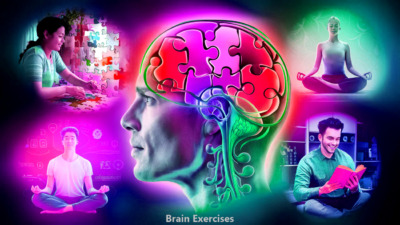Rheumatoid arthritis, also known as RA, is a painful inflammatory disease that affects millions of people all over the world. In this extensive piece, we will explore every aspect of rheumatoid arthritis, from its causes and symptoms to the most recent medications and lifestyle modifications that can assist people in leading satisfying lives despite having the condition.
What is rheumatoid arthritis?
Rheumatoid arthritis is a complex autoimmune disorder that primarily targets the joints. Unlike osteoarthritis, which results from wear and tear, RA is a result of the immune system mistakenly attacking healthy joint tissues. This chronic inflammation can lead to joint damage, pain, and swelling, often affecting multiple joints simultaneously.
Causes and Risk Factors
Rheumatoid arthritis continues to have a mysterious origin; nevertheless, there is mounting evidence that genes play an important role in the disease. People who come from families where rheumatoid arthritis has been diagnosed are at a greater risk. In addition, environmental variables, such as smoking, may play a role in the development of the condition. It is often critical for early intervention efforts to have a solid understanding of these risk variables.
Symptoms and Diagnosis
The complex disorder rheumatoid arthritis, also known as RA, has a wide range of symptoms, but it can be challenging to diagnose RA because of these symptoms’ diversity. A solid understanding of both the symptoms and the diagnostic process is essential for quick and efficient care.
Common Symptoms of Rheumatoid Arthritis
- Joint Pain: Persistent and often symmetrical joint pain, which may be initially subtle but progressively worsens.
- Joint Swelling: Inflamed joints, resulting in visible swelling and increased warmth around affected areas.
- Morning Stiffness: Stiffness and reduced joint mobility, particularly in the morning or after prolonged periods of inactivity.
- Fatigue: Profound and unexplained fatigue, which can be overwhelming and debilitating.
- Loss of Appetite: A decreased appetite often accompanies fatigue.
- Fever: Low-grade fevers can occur, especially during flare-ups.
- Weight Loss: Unintended weight loss due to the overall impact of the disease on the body.
Additional Symptoms
- Muscle pain: Muscle aches and discomfort can accompany joint pain.
- Numbness and Tingling: Some individuals may experience numbness or tingling in the extremities.
- Dry Eyes and Mouth: Known as Sjögren’s syndrome, RA can affect the tear and salivary glands.
- Rheumatoid Nodules: Firm lumps under the skin, often near joints.
Diagnostic Process
- Medical History: The first step in diagnosis is a thorough discussion of the patient’s medical history, including symptoms and family history of autoimmune diseases.
- Physical Examination: A physician will conduct a physical examination to assess joint swelling, warmth, and range of motion, among other factors.
- Blood Tests: Blood tests are crucial in diagnosing RA. The most common test is the Rheumatoid Factor (RF) test and the Anti-Cyclic Citrullinated Peptide (anti-CCP) test. Elevated levels of these markers are often associated with RA.
- Imaging: X-rays, ultrasounds, or MRI scans may be used to detect joint damage and assess disease progression.
- Synovial Fluid Analysis: In some cases, a synovial fluid analysis may be performed, involving the removal of a small amount of joint fluid for examination.
- Diagnostic Criteria: The American College of Rheumatology (ACR) and the European League Against Rheumatism (EULAR) have jointly developed criteria for diagnosing RA. These criteria consider the number and location of affected joints, blood test results, and symptom duration.
- Early Diagnosis: Early diagnosis is crucial because prompt treatment can help prevent joint damage and improve the quality of life for individuals with RA.
Treatment Options
A multi-pronged strategy is required for the management of rheumatoid arthritis. In order to alleviate symptoms, slow down the progression of the disease, and enhance the patient’s quality of life, the treatment plan will frequently incorporate multiple medications, modifications to the patient’s lifestyle, and other types of therapy.
Medications for Rheumatoid Arthritis
Medications are a cornerstone of RA treatment. They can be classified into pain relievers, anti-inflammatories, disease-modifying antirheumatic drugs (DMARDs), and biologics. Each category of medication targets different aspects of the condition and plays a specific role in managing the disease.
Lifestyle Changes
In addition to medications, lifestyle changes can significantly impact the well-being of individuals with RA. These changes may include maintaining a healthy weight, adopting a regular exercise routine, and getting adequate rest. Proper self-care can help reduce pain and improve joint function.
Coping with Rheumatoid Arthritis
Being diagnosed with RA can be emotionally challenging. Coping strategies and emotional support are vital components of managing the disease. We will discuss how individuals can maintain a positive outlook and find emotional strength while living with rheumatoid arthritis.
Rheumatoid Arthritis and Diet
The diet plays a role in managing RA symptoms. While there is no specific “RA diet,” certain foods can help reduce inflammation and improve overall health. We will explore dietary choices and provide tips for a well-balanced diet that supports individuals with rheumatoid arthritis.
Research and Advances
Ongoing research is continually expanding our understanding of rheumatoid arthritis. We will delve into the latest scientific advancements, potential breakthroughs, and emerging treatments that offer hope to those living with RA.
Alternative Therapies
Complementary and alternative therapies, such as acupuncture, yoga, and mindfulness, can be beneficial in managing RA symptoms and improving overall well-being. We will discuss these alternative approaches and their potential benefits.
Living a Fulfilling Life with RA
Despite the challenges of rheumatoid arthritis, many individuals lead fulfilling lives. We will share inspiring stories and practical advice from people who have overcome obstacles and achieved their goals while managing RA.
Rheumatoid Arthritis in Children
RA can affect individuals of all ages, including children. We will explore the unique challenges and considerations when dealing with juvenile rheumatoid arthritis, highlighting the importance of early diagnosis and specialized care for young patients.
Prevention and Management
While there is no known cure for rheumatoid arthritis, prevention and effective management strategies can greatly improve the quality of life for those living with the condition. We will outline strategies for preventing RA when possible and effectively managing the disease when diagnosed.
Read More: 10 Best Exercises for Relieving Knee Pain
Conclusion
In conclusion, rheumatoid arthritis is a complex autoimmune disease that requires a comprehensive approach to management. By understanding its causes, symptoms, and treatment options, individuals can take proactive steps to lead fulfilling lives despite the challenges of RA.
FAQs
1. Can rheumatoid arthritis be cured?
Rheumatoid arthritis is a chronic condition with no known cure. However, early diagnosis and effective management can help individuals live well with the disease.
2. What are the most common medications for RA?
Common medications for rheumatoid arthritis include pain relievers, anti-inflammatories, DMARDs, and biologics.
3. How can diet help in managing rheumatoid arthritis?
A balanced diet can help reduce inflammation and improve the overall health of individuals with RA.
4. Are there any promising treatments on the horizon for RA?
Ongoing research offers hope for new treatments and therapies that may further improve the lives of people with rheumatoid arthritis.
5. Can children develop rheumatoid arthritis?
Yes, rheumatoid arthritis can affect individuals of all ages, including children, in the form of juvenile rheumatoid arthritis. Early diagnosis and specialized care are crucial for young patients.








